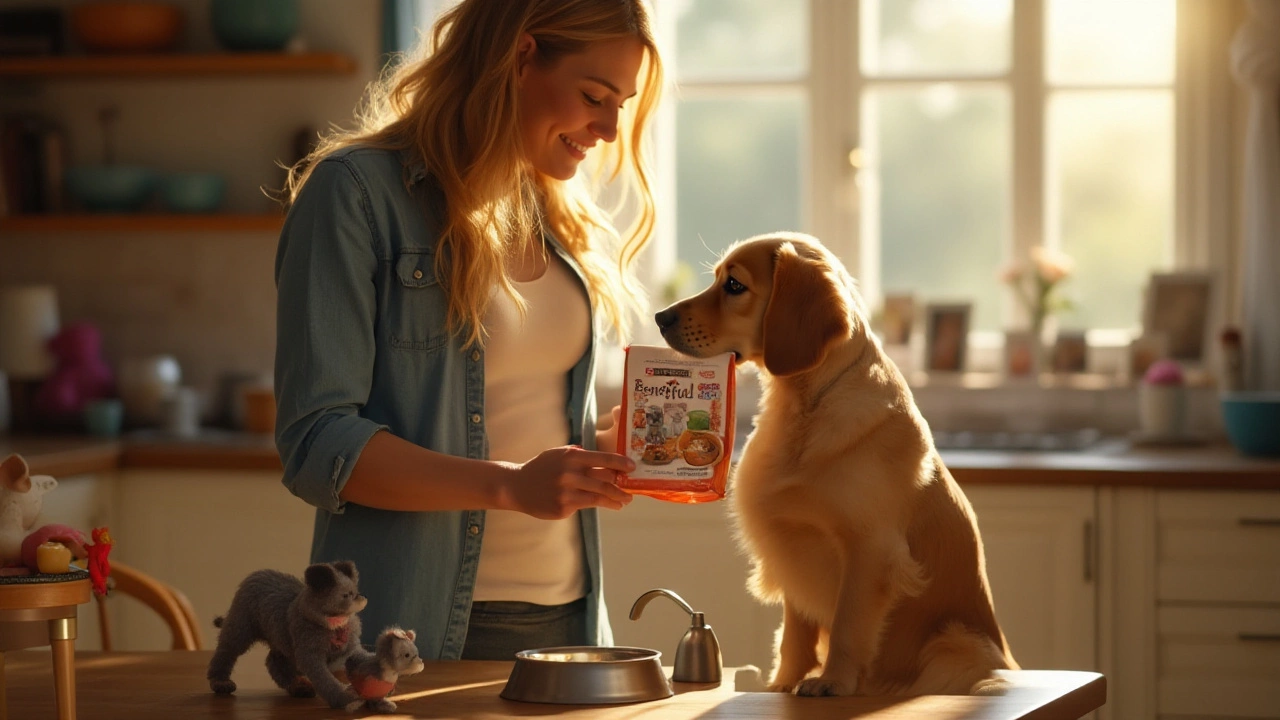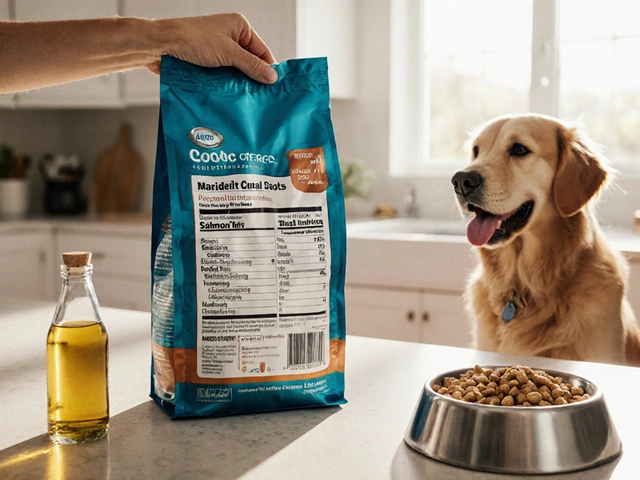The world of pet care is filled with love, dedication, and, sometimes, controversy. Among the most talked-about issues in recent years has been the lawsuit against Purina Beneful dog food, raising questions about our furry friends' safety and health.
It's vital for pet owners to stay informed, not just for peace of mind, but to ensure they make the best choices for their pets' nutrition. Concerns have been brought up, particularly focusing on the safety and quality of certain ingredients reportedly causing harm to pets.
This article ventures into the heart of these claims, examining what has been alleged, how Purina has responded, and what steps pet owners can take to ensure their dogs are consuming only the healthiest options available. Stay with us as we peel back the layers of this unfolding story.
Background of the Lawsuit
In recent years, the pet food industry has seen its fair share of controversies, but few have shaken it quite like the legal storm surrounding Purina Beneful. Known for its vibrant marketing and promises of balanced nutrition, Beneful has long been a popular choice among dog owners. However, that trust was called into question when lawsuits began to surface, alleging that certain ingredients in Beneful's products were causing illness and, in some cases, death in dogs.
The saga began in earnest in early 2015 when a class-action lawsuit was filed against Nestlé Purina Petcare Company, the manufacturer of Beneful dog food. The complaint, spearheaded by pet owner Frank Lucido, claimed that Beneful contained dangerous substances, including propylene glycol and mycotoxins, which were allegedly linked to various ailments in dogs, ranging from digestive problems to liver and kidney failure. As stated in the legal filing, these ingredients were accused of contributing to severe health declines in pets, igniting a wave of concern among the pet-owning community.
"We wanted Purina to be held accountable for the unforeseen impacts of their products," said a representative from the legal team handling the case. "Our aim was to ensure no pet owner has to endure the heartbreak of losing a beloved companion unnecessarily."
As more pet owners came forward, detailing similar grievances about their dogs suffering from unexplained ailments after eating Beneful, the allegations gained momentum. Criticism mounted over whether Purina maintained adequate safety measures or transparency regarding their ingredient sourcing and manufacturing processes. The legal proceedings highlighted a broader concern within the pet food market: the need for rigorous testing and clear labeling of pet food products. Critics argued that the industry's oversight was insufficient, calling for more stringent regulations to protect pets and maintain public trust.
The lawsuit's spotlight on Purina prompted the company to respond vehemently. They stood by their products, asserting that Beneful was safe and that their ingredients were FA-approved and commonly used in human food. Purina cited extensive testing conducted by their team, which they claimed contradicted the allegations brought forth by the lawsuit. Despite the defense, the lawsuit lingered, encapsulating broader questions about corporate responsibility and consumer safety in the pet food sector.
This legal battle underscored a pivotal moment where consumers' willingness to demand accountability clashed with industry practices. It spurred dialogue among pet owners, veterinarians, and pet advocacy groups, all eager to navigate the complexities of pet nutrition and safety. As the litigation continued, it became a galvanizing force, calling attention to potential gaps in pet food regulations and emphasizing the importance of informed choices for pet owners everywhere. The ripple effects of this lawsuit continue to influence the landscape of pet food safety to this day.

Claims Against Beneful
The allegations against Purina Beneful have sparked considerable debate among pet owners and veterinary experts. At the heart of the controversy are claims that certain ingredients in the dog food have led to severe health problems, including gastrointestinal distress, internal bleeding, and liver malfunction. These claims have been voiced by numerous plaintiffs who have reported their dogs suffering, some critically, after consuming Beneful products. Many have pointed to propylene glycol, a chemical used to maintain moisture in the kibble, as a potential culprit. Though it is generally considered safe by regulatory bodies for certain uses, some argue that it shouldn't be present in pet food in such quantities.
Equally concerning is the alleged presence of mycotoxins, toxic by-products produced by fungi that contaminate crops. While all dog foods can have low levels of these naturally occurring substances, there's anxiety that high levels could cause harm. Some plaintiffs have engaged independent testing laboratories to back their claims, presenting alarming findings that exceeded what is typically deemed safe. These findings are juxtaposed against longstanding assurance from the company, which maintains its commitment to quality and safety standards. Purina Beneful lawsuit discussions often stir passionate debates, especially online, where communities of pet lovers exchange their experiences and worries.
"The health and well-being of pets and their owners is our primary concern, and Beneful adheres to rigorous safety and quality controls," a Purina representative assured in a media statement. This quote reflects the company's stance that they diligently follow industry safety standards and regularly test their products to ensure they meet adequate health requirements.
Despite the assurances, the lingering questions cause uncertainty, highlighting an essential discussion about transparency in the pet food industry. Pet owners want clearer labeling and more information on what goes into the kibble they serve their beloved companions. They need to know the processes involved in producing these foods and feel secure that what they feed their pets is not just nutritionally sufficient but also safe from harmful contaminants. This demand for transparency has led to a broader conversation about regulations governing the pet food industry. The Purina dog food recall lawsuit has, in many ways, been a catalyst for more scrutiny and demands for tighter safety standards globally.

Purina's Response
When facing the storm of controversy, Purina has been unwavering in its defense of its Beneful dog food products. The company has consistently stated that their products are safe and healthy for pets to consume, underpinned by stringent quality control standards and nutritional research. According to Purina, the alarming allegations are not supported by reliable scientific evidence and are largely unfounded. They emphasize their long history of commitment to pet health, which includes rigorous testing and validation of ingredients used in all their products.
Purina asserts that the ingredients in Beneful have been approved by regulatory authorities for pet food use. This stance is not just about maintaining a public image but is rooted in documented compliance with the food safety regulations endorsed by the Food and Drug Administration (FDA) and the Association of American Feed Control Officials (AAFCO). These bodies ensure that the pet foods they approve meet some defined nutritional needs, ensuring safety and quality. Purina openly assures consumers that they adhere to these guidelines strictly and transparently.
In an official statement, Purina mentioned, "We take pesticide and herbicide contamination claims very seriously and conduct regular testing of our ingredient supply chain to maintain safety beyond just what's required by regulations." Such assertions highlight the manufacturer's dedication to not just meeting but exceeding the industry expectations. The fact that Beneful products continue to be available on the shelves and are consumed by millions of happy pets worldwide strengthens Purina's case.
The Pet Food Institute, an industry trade group, has backed Purina's defense, stating, "Pet food safety and pet food quality are of paramount importance, and it’s a matter of trust and commitment to pet owners to provide nutritious and safe food for our faithful companions."
To counteract the negative publicity, Purina has taken proactive measures by engaging with their customer base directly. They've expanded their efforts to educate the public on their food's makeup and benefits, emphasizing that each ingredient used serves a dietary purpose. In many of their communications, Purina encourages pet owners to reach out with concerns, promising to address each one earnestly and transparently.
This controversy has undoubtedly raised awareness among consumers about what goes into their pet's food. For Purina, the goal remains to ensure their Beneful line not only continues to meet nutritional standards but gains trust from cautious pet owners. It is this approach that might eventually define their role not only amidst this legal dispute but also in the broader competitive pet food landscape.

Pet Food Safety Tips
Ensuring your dog's diet is both safe and nutritious can feel like a daunting task amidst the plethora of options lining the shelves. Yet, understanding the principles of pet food safety and quality can ease decision-making and keep your beloved pets healthy. Here are some essential tips to guide you through the process with confidence and care.
Firstly, a diligent check of ingredient labels is crucial. Understanding what goes into your dog's food helps in avoiding potentially harmful ingredients. Think of controversial additives like propylene glycol, often scrutinized despite being considered safe by regulators in small amounts. Recognize unfamiliar words on labels? An easy trick is to look them up right on your phone or jot them down to research later. Ingredients are listed by weight from most to least, so take the time to recognize the significance of the first five ingredients. Ideally, these should be proteins and whole grains, free from fillers or artificial dyes.
Another pivotal step is to be mindful of recalls. Signing up for alerts through reliable pet food safety websites ensures you're informed of any recalled products swiftly. Recalls are made by the FDA for a reason and usually relate to contamination risks or incorrect ingredient listings which could harm your pet. Keeping track of recalls can mitigate potential health risks. Moreover, regular consulting with your vet can offer personalized guidance based on your dog's specific dietary needs and health conditions, ensuring a balanced diet for your beloved pet.
"The aim should always be an intentional and transparent partnership between the pet food manufacturer and the consumer," notes renowned pet nutritionist Dr. Karen Becker. "It's all about making informed choices."
Connecting with other pet owners can also prove invaluable. Being part of a community helps in sharing insights and experiences. Use social forums or local groups to get recommendations and reviews on dog foods. Fellow pet owners' firsthand experiences can sometimes offer insights that aren't immediately obvious from the packaging or official reviews alone.
Finally, storage is often overlooked but critical to maintaining the safety of pet food. Many people aren't aware that improper storage can lead to rapid spoilage. Store kibble in airtight containers to preserve freshness and prevent contamination from pests or mold. Keeping it in a cool, dry place is recommended. Canned food, once opened, should be refrigerated and used within a few days. Following these proper storage methods guarantees the nutritional value of the food is retained for as long as possible, preventing waste and ensuring consistent quality.
As a pet owner, always remember that pet safety starts with education. From recognizing quality benchmarks on labels to understanding the implications of a recall, being informed is your greatest asset. Making thoughtful choices in your dog's nutrition can significantly contribute to their health and happiness.







